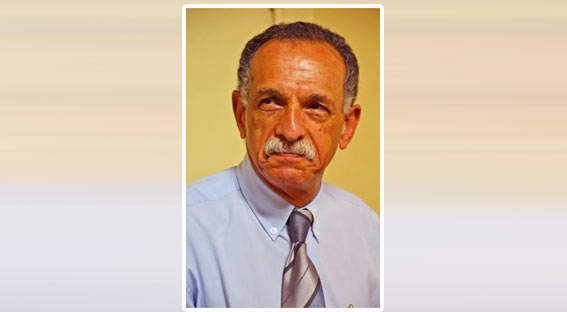On 13 February 2023, Egypt’s official gazette published the Prime Minister’s decision approving the legalisation of status of a 25th batch of churches and Church affiliated buildings from among 3730 that had applied for legality in September 2017. Prime Minister Mostafa Madbouly chairs the Cabinet committee charged with looking into the cases of churches and Church affiliated buildings that had been built without licence. The committee started its work on 28 December 2017 with 3730 churches and Church affiliated community buildings across Egypt, that had applied for legality before the deadline set by the 2016 Law for Building and Restoring Churches.
The recent decision involves a total of 73 cases: 33 churches and 40 community buildings. This brings the legalisations approved up to 2605 out of the total 3730, meaning that the committee has accomplished 69.9 per cent of its charge in the span of five years and five months. At this rate, the Cabinet committee would need another two years and four months to complete looking into the remaining 1125 cases; the entire task would have taken seven years and nine months to complete. The Egyptian folk saying goes: “The bigger portion has been accomplished … what remains is the lesser” (sigh).
The 2016 law was the first ever in Egypt to govern the building and restoration of churches; it also made provision for legalisation of already existing unlicensed churches and Church affiliated buildings. Until the 2016 law was passed, it was next to impossible for Copts to obtain official licence to build or restore a church. Copts, who direly needed churches in view of growing congregations and declining conditions of existing churches, resorted to circumventing the law and building churches without licence. Applications for legalisation submitted to a Cabinet committee charged with looking into them amounted to 3730 cases the files of which were handed in before the deadline of 28 September 2017, one year on the passage of the law.
Watani has been regular in publishing the successive lists of churches and buildings approved for legalisation by the Cabinet-affiliated committee charged with that task. The committee issues approvals every few months for legalisation of batches of churches and buildings in various regions in Egypt, belonging to the Orthodox, Catholic and Evangelical Coptic Churches. Legalisation becomes final only when the approved churches prove land ownership, pay any required dues, and comply with provisions of structural soundness and civil defence [safety] conditions. Given that a sizeable number of unlicensed churches were built in rural areas or underprivileged, unplanned urban areas characterised by very narrow streets, and crowded wall-to-wall small buildings, complying with standard safety conditions has not been attainable in many cases. Church officials complained about this to the Cabinet committee which then decided to involve the Ministry of Housing in resolving the issue by figuring out adequate safety requirements according to relevant building codes. Until this is resolved, churches have been required to fulfil the minimum precautionary measures, such as providing fire extinguisher facilities.
Watani prints in its current issue of 12 March 2023 the detailed lists of churches and service buildings included in the 25th decision. They are divided into four sets throughout 15 governorates.
The first set lists churches and Church affiliated community centres approved for legality provided they complete the civil safety measures in no more than six months on the date the decision is issued. This set includes 17 churches and 24 community centres, a total 41 buildings in the governorates of Cairo, Alexandria, Giza, Beheira, Sharqiya, Qalyubiya, Beni-Sweif, Minya, Sohag, Luxor, Aswan and South Sinai.
The second set lists churches and Church affiliated buildings approved for legality provided they complete the civil safety measures in no more than six months on the date that decision is issued. This, in addition to settling any State dues required, and provided there is no ownership dispute regarding the land on which the buildings were erected. This set includes eight churches and 15 community centres, a total 23 buildings in the governorates of Cairo, Beheira, Matrouh, Sharqiya, Qalyubiya, Ismailiya, Qena, Luxor, Aswan and South Sinai.
The third set concerns churches and affiliated buildings that were approved for legality provided they complete the civil safety measures in no more than six months on the date that decision is issued. This, in addition to settling any State dues required. This set includes six churches in the governorate of Alexandria.
The fourth set concerns churches and affiliated buildings that were approved for legality but did not comply with structural soundness provisions, thus require demolition and reconstruction. This set includes two churches and one community service building in the governorates of Beni-Sweif and Sohag.
As the committee is getting close to finish looking into all the cases that had applied for legality before the deadline stipulated by the 2016 law, we must note that so far the committee has issued 25 decisions the details of which Watani has thoroughly published. The conditions for acquiring legality that were stipulated in those 25 decisions were: fulfilling civil safety measures; settling any State dues; and ensuring there is no ownership dispute. In addition to that, according to the committee, some of the cases lacked structural soundness, whereas others needed demolition and reconstruction.
In light of these conditions stipulated by the Cabinet committee, we can see that the approvals for the legalisation of status of churches and Church affiliated buildings hinge on fulfilling the conditions required case by case. Accordingly, the issue remains open for follow-up even after the committee completes its task. I imagine that the Cabinet would need to follow up on the provisional cases and to publish reports to explain their status, in order to avoid any doubts or concerns that may mar the legalisation process.
Watani International
10 March 2023










